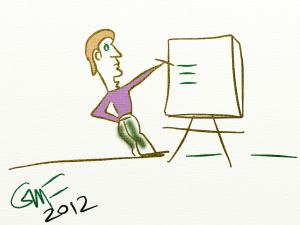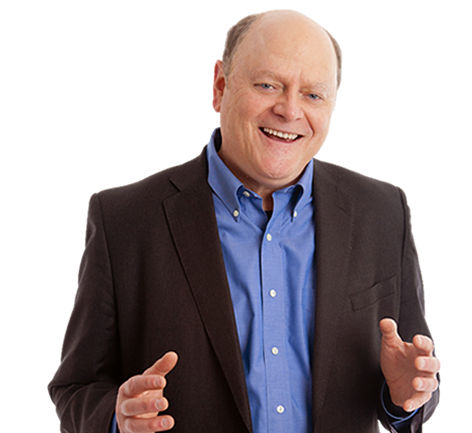 At the heart of it, much of my professional work revolves around facilitation. Mostly I facilitate innovation projects. I do other things of course (speaking, writing, coaching) but I am often to be found, on my feet, creating innovation magic — facilitating idea generation sessions, aka ideation, aka brainstorming. And Yes, It Works. They work!
At the heart of it, much of my professional work revolves around facilitation. Mostly I facilitate innovation projects. I do other things of course (speaking, writing, coaching) but I am often to be found, on my feet, creating innovation magic — facilitating idea generation sessions, aka ideation, aka brainstorming. And Yes, It Works. They work!
Because it’s so much a part of my daily work life I sometimes forget what a challenge facilitation can be for others. It also occurs to me that if you’ve never had a good facilitator you don’t know what you’re missing. It’s interesting that I often hear, after my sessions, that they’ve never had such an “active” or productive session.
Apologies for a bit of horn tooting. It wasn’t always this way. I should probably give my early clients a call and offer a free session to make up for the, err, imperfect bits I did for them years ago.
It takes time and practice to become a good facilitator.
Even back in my early days I “knew” the theory, methodologies, tools and techniques, but trust me, there is nothing quite like running about 200 sessions to better inform your design and execution. And if one is really after growth at something you go beyond the text book of best practice and actually invent new stimulus, tools and techniques. I got there, stumbling often along the way, but improving with each “at bat.”
I’ve been involved in projects where I’m not facilitating and have suffered through competent-but-deadly-dull, poorly organised, faux fun, and at the end of the day, sadly ineffective idea generation sessions. Part of the problem, undoubtedly, was the lack of facilitation that occurred before we got in the room. A poorly focused, inexpertly planned ideation day is where it all starts to go pear shaped.
For instance, the question or platform to be handled in the session is absolutely key to great results. If you have an obvious, off target, or non-perspective-shifting question, you’re set up for failure. Sadly, many facilitators accept the first thing a client says and don’t realize it’s part of their job to help them do more thinking around objectives and platform questions. Also part of the job is to get the team thinking BEFORE they get to the session. I have to laugh at all the current literature around whether to do brainstorming alone or in groups. I’ve been doing BOTH for years, and it’s essential.
I just want to say simply — if you’ve not had the results you want, you might want to spend some money, get somebody good, and up your innovation facilitation game.
So guidance for you dear readers in three simple bullets:
- Knowledge matters. The facilitator doesn’t have to know your industry (it doesn’t hurt) but knowledge of process is paramount. Ask them what framework they use, ask how they choose tools & techniques, ask for sample plans.
- Experience matters. If you want results make sure you have someone who totally has done this before. And Many Times. You might get a good competent session from a young and inexperienced facilitator — but it’s almost guaranteed you won’t get a great one.
- Energy matters. I had a client say to me recently “wow, this is the first session I’ve ever been to where the whole group didn’t hit the wall just after lunch…the day went by so quickly.” Managing energy and having energy go hand in hand. How do you evaluate energy? It’s in everything the facilitator does. If they’re not enthusiastic on the phone, they won’t be at the session.



One response to “Three Ways to Up Your Innovation Facilitation Game”
[…] you can do this alone if need be. If you enlist others to jam ideas learn something about how to facilitate brainstorming (most small business people do it wrong). Use your notebook, make a long list of ideas. This could […]